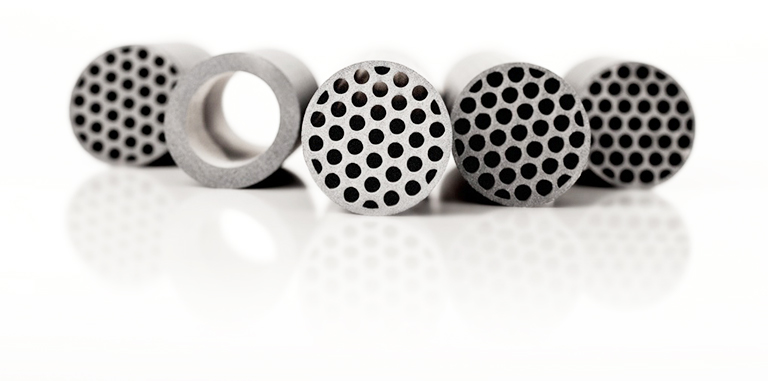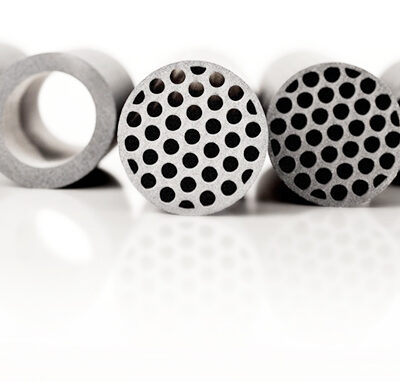The separation of oil from stable oil in water emulsions is a challenge. This is especially the case if the limits for oil in water are very low, as is the case for the discharge of produced water. Equally challenging is the separation of oil or grease under more extreme process conditions, which is of interest in for example the processing of food, dairy, pharmaceuticals and chemicals.
Many separation technologies have been studied and proved to be technically or economically challenging. However, Silicon Carbide (SiC) membranes does seem to be a viable option. In a new project the development and characterization of SiC membranes in order to use these for innovative applications is being explored.

Pilot trial
In previous ISPT projects – such as CombiClear – it was shown that SiC membranes show good performance for the treatment of oil in water emulsions. However, what is currently still missing and needed for deployment in industry, is knowledge about the behavior of these membranes during duration tests and in particular the possibilities for cleaning these membranes. This will be studied in this project during a pilot trial in a relevant environment, where fouling, cleaning options, cleaning frequency and the consequences for the long term performance and economics will be determined.
Opportunities
Because SiC membranes are very robust, their applicability could be extended to other domains, such as food, dairy, pharmaceuticals, and chemistry. To do so, the potential of the SiC membranes for several of these applications will be studied on small scale and will provide the performance of these membranes for these applications, such as flux, separation factor, and others. Because these other applications require partly different types of separation characteristics of the SiC membranes, the existing UF/MF range of SiC membranes will be extended to the nanofiltration (NF) range by the development of more dense coatings.
The project will deliver a good assessment of the feasibility of the SiC membranes. It will extend their feasibility to new applications and sectors, and derisk the technology with duration tests for challenging separation of stable oil in water emulsions. This will ensure that SiC membrane technology will be ready for large-scale deployment in the future.
